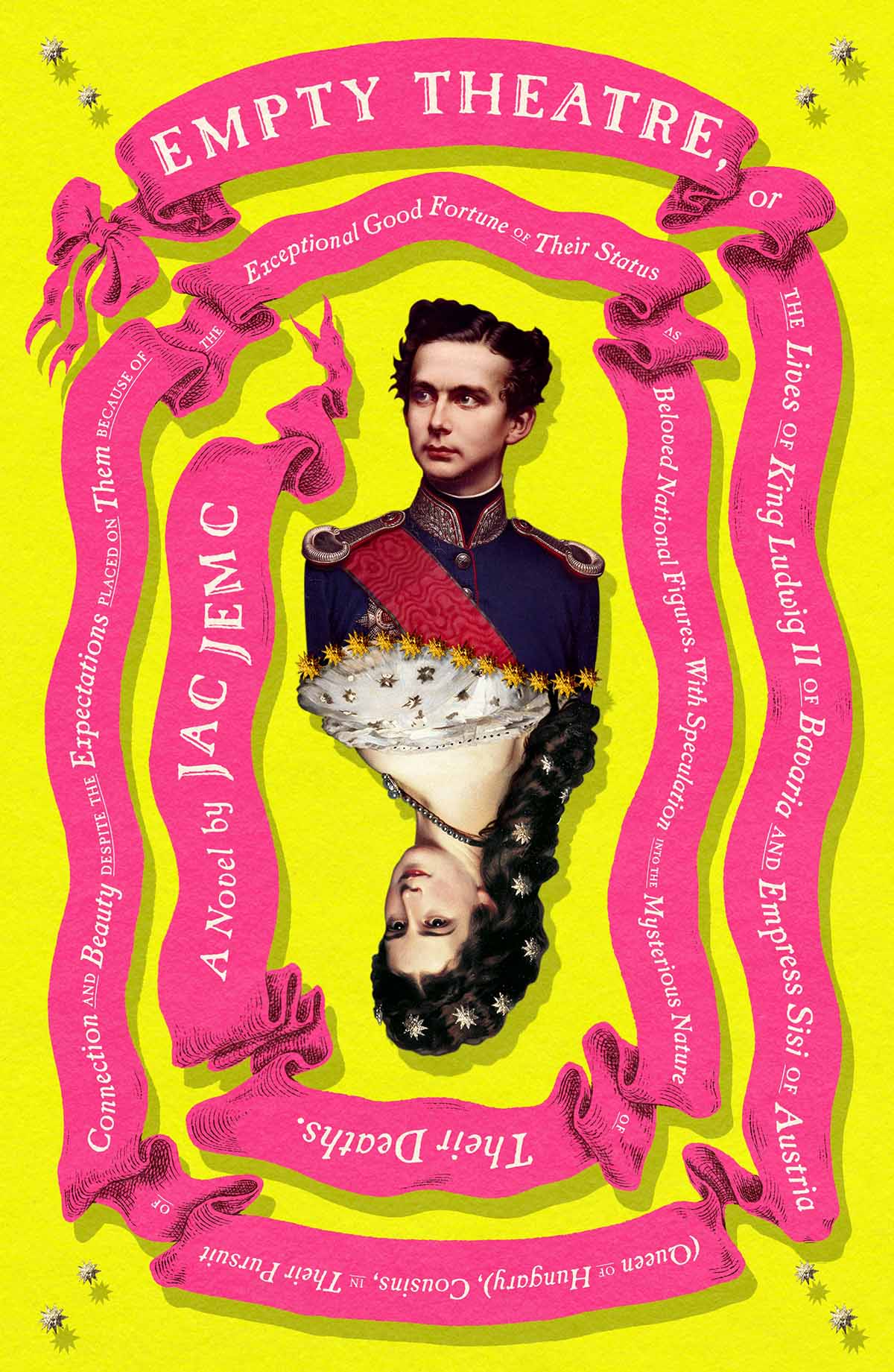The monarchies they presided over have crumbled. Most of their contemporaries have been forgotten. And yet, Empress Elisabeth of Austria and King Ludwig II of Bavaria live on.
Generation after generation has been titillated by the high drama of the cousins’ lives – the kind that reality television producers in 2023 could only dream of. Movies, TV shows, books and exhibitions have explored the lives of Elisabeth (known as Sisi) and Ludwig, eccentrics devoted to beauty and to the arts.
Empty Theatre, a novel by Jac Jemc, is the latest entry into this canon. Laden with biographical details and descriptions of historical events, and following a straightforward birth-to-death timeline, the novel could read almost as a non-fiction book, if not for some of the author’s witty asides.
With a brisk pace, Jemc imagines the motivations and traumas that formed two famous 19th-century figures about whom much has been said, but who remain, in some ways, inscrutable: Ludwig, “a young man forced to rule too young”, and Sisi, “the most beautiful woman in Europe”.
Those who know little about the cousins will likely delight in this juicy rendition of their lives
Along the way, Jemc pauses at times to deliver a dialogue or highlight peripheral historical characters such as Lola Montez, an infamous dancer, or Elisabet Ney, a successful sculptor and feminist.
Though Jemc draws narrative and psychological threads from one event to another – linking the beginning of Sisi’s extensive travels to the death of her daughter and to her husband’s contraction of syphilis from a mistress, for example – she covers too much ground across the novel’s 400-some pages to really dig deep. There is plenty of entertainment in the book, but not much intimacy.
Marketing has described the novel as a satire, but in the case of Ludwig and Sisi, the facts hardly need satirising. At one point, for example, Sisi tells Ludwig that she travels with her own cow. “I’ve been unable to drink the milk from any other animal,” she says. A joke? Not at all. Sisi, a picky eater, was known to bring a cow or a goat on her month-long journeys.
 Empty Theatre, by Jac Jemc
Empty Theatre, by Jac Jemc
In Jemc’s rendition, Sisi and Ludwig are odd from the start.
When Sisi is a child in Bavaria, her mother, Ludovika, frets that her daughter shows signs of a “melancholy strain”. The royal-born girl rides horses and sleeps in the stable, waking up the next day smelling of hay.
Meanwhile, young Ludwig is ruled by flimsy whims and suffers the neglect and sporadic but harsh discipline of his parents. In one particularly uncomfortable scene, the young prince is served soup made from his beloved pet tortoise. “He’s grown too attached to it. He mothers the thing all day, swaddling it and feeding it with an eyedropper. He should be trying to set it on fire or something,” his mother tells his governess in Jemc’s vivid vignette.
Being married off as a teenager to Emperor Franz Joseph I of Austria hardly helps Sisi become more cheerful. As Empress, she is restless, frustrated by her lack of freedom. Next door, in Bavaria, Ludwig is crowned King at 18. Entirely disinterested in ruling, he channels his energy, and much of his money, into his obsession with the composer Richard Wagner.
Still practically a child herself, Sisi bears children, and feels herself “a door, a portal to be passed through, an entryway for the next generation”, Jemc writes. Sisi is not allowed any influence in her children’s lives; instead, they are raised by their grandmother, the Archduchess Sophie.
Depressed, Sisi flees the Habsburg court over and over again for the freedom of Corfu or Hungary. Ludwig stays closer to home, but hides away in his palaces, escaping into his imagination and leaving the work of ruling to his advisers.
When it’s time for Bavaria to choose a side in one war (Prussia versus Austria), then another (Prussia versus France), Jemc’s retelling has Ludwig close his eyes, shut his ears and proclaim: “War again? There must be some mistake!”
The cousins write long letters to each other, though their visits are sparse. Over time, they both become more reclusive, paranoid about the world around them.
Those who are well-versed in their Sisi-Ludwig histories will perhaps find Empty Theatre a bit redundant, as the book reads more like a dual biography than a searing psychological portrait with new insight. But those who know little about the cousins will likely delight in this juicy rendition of their lives.
Sign up to The Parliament's weekly newsletter
Every Friday our editorial team goes behind the headlines to offer insight and analysis on the key stories driving the EU agenda. Subscribe for free here.